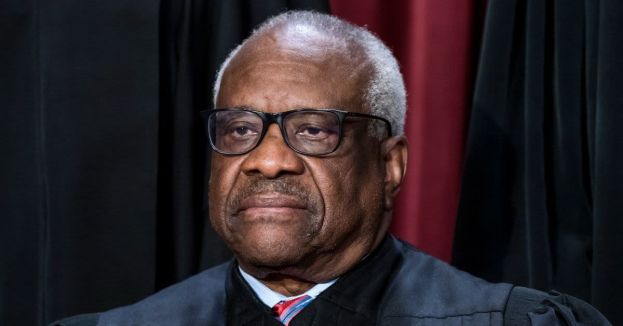The case, Trump v. United States, saw Thomas questioning not only the majority's stance on Trump's immunity from prosecution but also the legality of the Biden Justice Department's prosecution of Trump.
According to The Federalist, Thomas penned a concurrence in which he stated, “In this case, there has been much discussion about ensuring that a President ‘is not above the law.’ But, as the Court explains, the President’s immunity from prosecution for his official acts is the law.” He further challenged the legitimacy of the Special Counsel's office, stating, “I am not sure that any office for the Special Counsel has been ‘established by Law,’ as the Constitution requires.”
The Justice emphasized the need for the prosecution to be led by someone "duly authorized" by the American people, and called for lower courts to determine whether Special Counsel Jack Smith meets this criterion. This question is rooted in the Constitution's appointment clause, which safeguards the separation of powers by stipulating that offices are created by Congress and filled by presidents with the Senate's advice and consent, or by the President, “Courts of Law,” or “Heads of Departments” if Congress delegates them the authority.
WATCH: MAJOR DONORS ASKING FOR BIDEN TO STEP ASIDE![]()
Thomas drew a parallel between the current situation and the British monarchy's practice of creating numerous offices and appointing officers to harass the populace, as described in the Declaration of Independence. He argued that Congress never created the office of Special Counsel Jack Smith, and even if it did, Smith's appointment may not be lawful.
WATCH RACHEL MADDOW SUPREME COURT’S ‘DEATH SQUAD RULING’![]()
July 02, 2024
In his concurrence, Thomas scrutinized Attorney General Merrick Garland's reliance on "several statutes of a general nature" to justify Smith's appointment. He found Garland's use of 28 U.S.C. §509, 510, 515, 533 questionable, as none of these statutes clearly establish an office for the special counsel.
SENATOR WARREN SLAMS SUPREME COURT’S 'EXTREMIST MAJORITY' – WHAT'S HER NEXT MOVE?![]()
Thomas also pointed out that Congress has previously granted the attorney general the power to appoint "additional officers" to the Bureau of Prisons, suggesting that the legislative branch has limited the appointment power and would have been explicit if it intended the attorney general to appoint a special counsel like Smith.
CREEPY AI PRACTICES: CHILDREN'S PHOTOS FOUND IN MAJOR DATASETS CAUSING DEEP CONCERNS![]()
While acknowledging that presidents have appointed special prosecutors in the past without citing a specific authorizing statute, Thomas noted that the Supreme Court has never ruled on the constitutionality of such appointments. He concluded, “Respecting the protections that the Constitution provides for the Office of the Presidency secures liberty. Those questions must be answered before this prosecution can proceed. We must respect the Constitution’s separation of powers in all its forms, else we risk rendering its protection of liberty a parchment guarantee.”
INDEPENDENCE DAY HORROR: CHICAGO MOM REFLECTS ON 'TOTAL ANNIHILATION' TWO YEARS LATER![]()
Despite the Supreme Court's checks on the Biden administration's politicized Justice Department, it is noteworthy that only one justice, Thomas, called for a thorough examination of the lawfulness of Smith's office. His commitment to the Constitution and readiness to defend it single-handedly are commendable, but they also serve as a reminder that the courts are not a cure-all. The ultimate solution lies in robust legislative action to curb an unchecked administrative state.
NEO-NAZI CONVICTED: SHOCKING DETAILS OF GRUESOME MURDER REVEALED IN COURT![]()
The question of Special Counsel Smith's legitimacy may not be seriously considered by Judge Tanya Chutkan, who presides over the January 6 case in which the presidential immunity issue arose. However, Judge Aileen Cannon, overseeing Smith's classified documents case, has demonstrated a willingness to scrutinize the Justice Department's actions. This seems prudent given the apparent irregularities and flaws in the prosecution and Smith's history of being reprimanded by the Supreme Court. The court's ruling on presidential immunity has significant implications for the indictment's grounds for prosecution.
BOLD THREATS AND LEGAL WOES: STORMY DANIELS PREDICTS 'DARK FUTURE' UNDER ANOTHER TRUMP TERM![]()
The Supreme Court's ruling on presidential immunity, coupled with the potential dismissal of two of Smith's four January 6 charges in the Fischer case, underscores the need for judicial scrutiny of the Justice Department's actions. However, it also highlights the importance of legislative action in curbing an overreaching administrative state.







